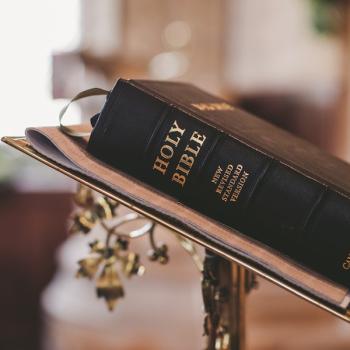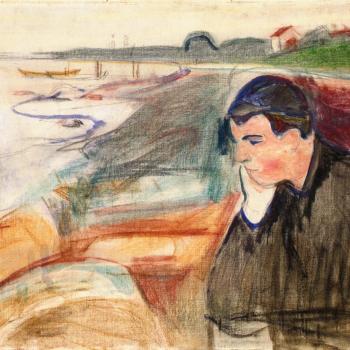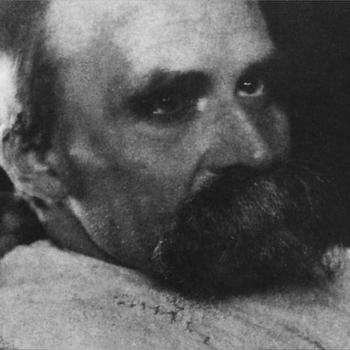I bother bringing up Lacan, because of Augustine’s clear and distinct influence on his thought and work (examples here, here, and here). I also bother bringing him up because my point is that “finding oneself” runs into issues not merely because we are created beings, but because we fundamentally experience lack, absence—call it concupiscence. I could quote Meister Eckhart or Simone Weil here, but I think Thomas Merton makes the point rather succinctly:
Our vocation is not simply to be, but to work together with God in the creation of our own life, our own identity, our own destiny […We are to] pray for our own discovery.
In other words, “finding oneself” is a fool’s errand, because we’re always finding out things about ourselves, locating desires and contradictions, even as we chase after some sense or semblance of wholeness (which we Christians know to be God). The true self is thus a sort of non-self, a fundamental experience of lack, of our nothingness and inconsistency in the face of the absolute, not some magic totem to be discovered through years of self-isolation or variegated experience.
Earlier, however, I said the phrase was a half-truth. And it is—it contains something of value. If we are disordered bundles of desire seeking completeness, that does not imply that we cannot discover things about who we are, what we want, and how we have gone about (and as a result will go about) our lives. Thus there is something like a “self,” a solution that we come to. Lacan calls it “traversing the fantasy.” As Matthew Sharpe writes:
Lacan’s name for what occurs at the end of the cure is traversing the fantasy. But since what the fantasy does, for Lacan, is veil from the subject his/her own implication in and responsibility for how s/he experiences the world, to traverse the fantasy is to re[-]avow subjective responsibility. To traverse the fantasy, Lacan theorizes, is to cease positing that the Other has taken the “lost” object of desire. It is to accept that this object is something posited by oneself as a means to compensate for the experienced trauma.
We Catholics typically just call this “responsibility” or better yet, in a formal way, “the Sacrament of Confession.” We speak what we have done; we accept our insufficiencies as our own, as the product of our own disordered desires (which are really just confusions). The wholeness we seek can only be found in discovering our radical finitude, our lack. We speak our desire and thus recognize the impossibility of a “stable self.” We come to find ourselves in a nothingness chasing after a wholeness, falling, confessing, getting up again.
I’ll leave you with Francisco de Quevedo’s lovely poem on this very subject:
“Is any life home?” Nobody answers?
Help, here are the years I have lived!
Fortune has gnawed away my days;
madness absconded with my hours.Powerless to know how or where
my health and years have fled.
Missing is life, existence remains;
and everywhere calamity awaits.Yesterday’s gone, tomorrow’s late,
today wastes not an instant leaving:
I am a was, a will be, a weary is.Today, tomorrow, and yesterday
I sew shroud to swaddling clothes,
And so succeed my dead self again.













